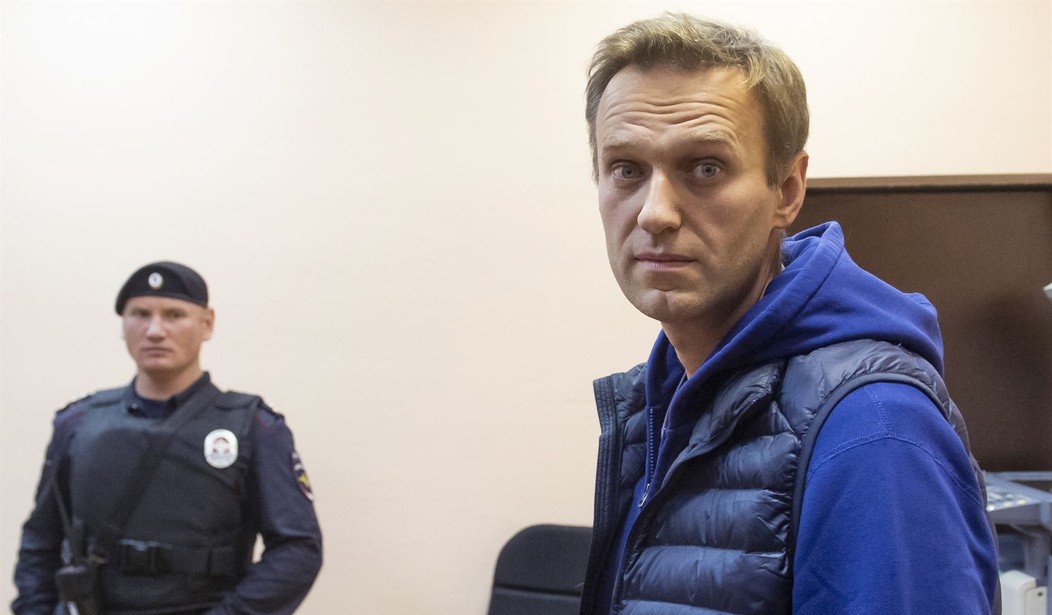Alexei Navalny, the Russian nationalist and long-time thorn-in-the-buttcheek to Russian President Vladimir Putin, died in a Russian penal colony north of the Arctic Circle Thursday. My colleague Ben Kew has the news, but Navalny's death, at this time, seems to be a message to internal and external audiences.
BACKGROUND: Alexei Navalny, Martyr for Russian Democracy, Dies in Prison Aged 47
At the time of his death, Navalny had been in prison since 2021, but the odds of him ever getting out of prison approached zero. The Putin regime extended Navalny's two-and-a-half-year sentence that he received in 2021 several times, with a final conviction handed down in August 2023, getting him a further 19 years in a "special regime" labor camp. His lawyers were arrested and charged with participating in "extremist activity" two months after Navalny's sentencing.
The exact circumstances of Navalny's death remain unclear. He was hospitalized last year in critical condition, and his allies suspected poisoning.
[Russian political activist Ruslan] Shaveddinov said his team now believed Navalny was being slowly poisoned. “Our theory is that they are gradually killing him, using slow-acting poison which is applied through food,” he said.
“It might sound like paranoia, but after the novichok poisoning, it seems completely plausible. He lost 8kg in two weeks, this hasn’t happened before and the doctors are not telling him why he is in so much pain,” Shaveddinov said.
Navalny was poisoned with novichok, a Soviet-made nerve agent, on a trip to Siberia in 2020. He received treatment in Berlin and has accused Vladimir Putin of being behind the attack.
Before Navalny's death, he seemed healthy. This is from a court appearance via video link on Thursday.
Yesterday, Aleksey Navalny spoke in court via video link. He seemed to be in good health and and even joked. https://t.co/iXxwW3MSXM pic.twitter.com/mXDeJuVpPg
— Anton Gerashchenko (@Gerashchenko_en) February 16, 2024
Let's clear away some underbrush. Navalny symbolized the possibility of change in Russian politics, but he was not a political threat to Putin or particularly liberal by Western standards. The political climate in Russia does not allow for competing parties, though those chandeliers in the Moscow subways are damned classy, and they have these coin-operated grocery carts that show their society is superior to that in America. But the Tsar can't have someone challenging him or held up as an alternative by other nations. Navalny was a Russian nationalist who supported Russia's invasion of Georgia and referred to ethnic minorities in Russia as cockroaches. I think he was seen as a democrat in much of the West only because he opposed Putin.
If Navalny wasn't deliberately murdered, he was killed through calculated cruelty. And that death, one way or another, was due to Putin's orders. It takes a degree of turning a line eye to ignore the fact that he died thirty days before Putin's triumphal reelection. That his death took place on the day his wife was scheduled to address the Munich Security Conference also seems problematic. If we ignore the relatively small possibility that Navalny died without human intervention, then we have to assume his passing had a purpose.
Because Navalny could've stood too close to a window at any time for the last decade or so or had a bad curry, we have to assume that Navalny's passing in a Russian punishment labor camp at this time was to send a message. To internal opponents the message is, "I don't care how many Western prizes you win, if you color outside the lines I will kill you." To the West, the message is, "F*** you and your democratic opposition. My house, my rules." And to the Russian "establishment" opposition that may be coalescing inside the oligarchy and security services, "I just whacked the darling of the West and told them to FOAD. Do you really think anyone will care if I kill you?"
A final note. While the aphorism attributed to Josef Stalin, "No man, no problem," is generally true, sometimes a death, or series of deaths, becomes a rallying point that enables regime opponents to work together. Alexei Navalny left behind a message in case of his death.
Navalny left the following message in the event of his murder:
— The Intellectualist (@highbrow_nobrow) February 16, 2024
"If they decide to kill me, it means we are incredibly strong."pic.twitter.com/CC2WLZAWHF
Will Navalny become such a rallying point? I don't know. I've seen nothing in Russia that leads me to believe that civic structures or identities exist that would allow the type of widespread opposition that has ousted other autocrats. But one never knows.













Join the conversation as a VIP Member